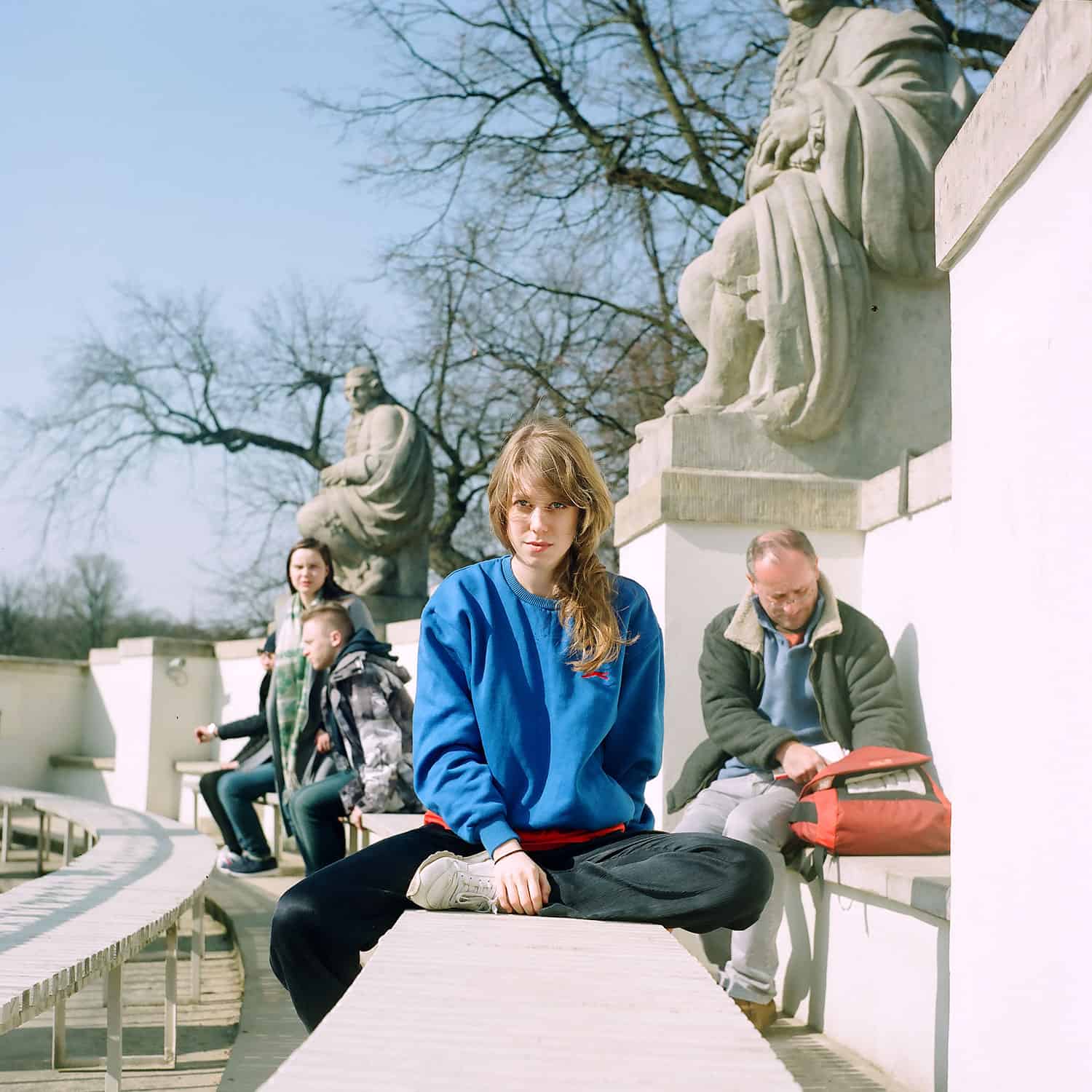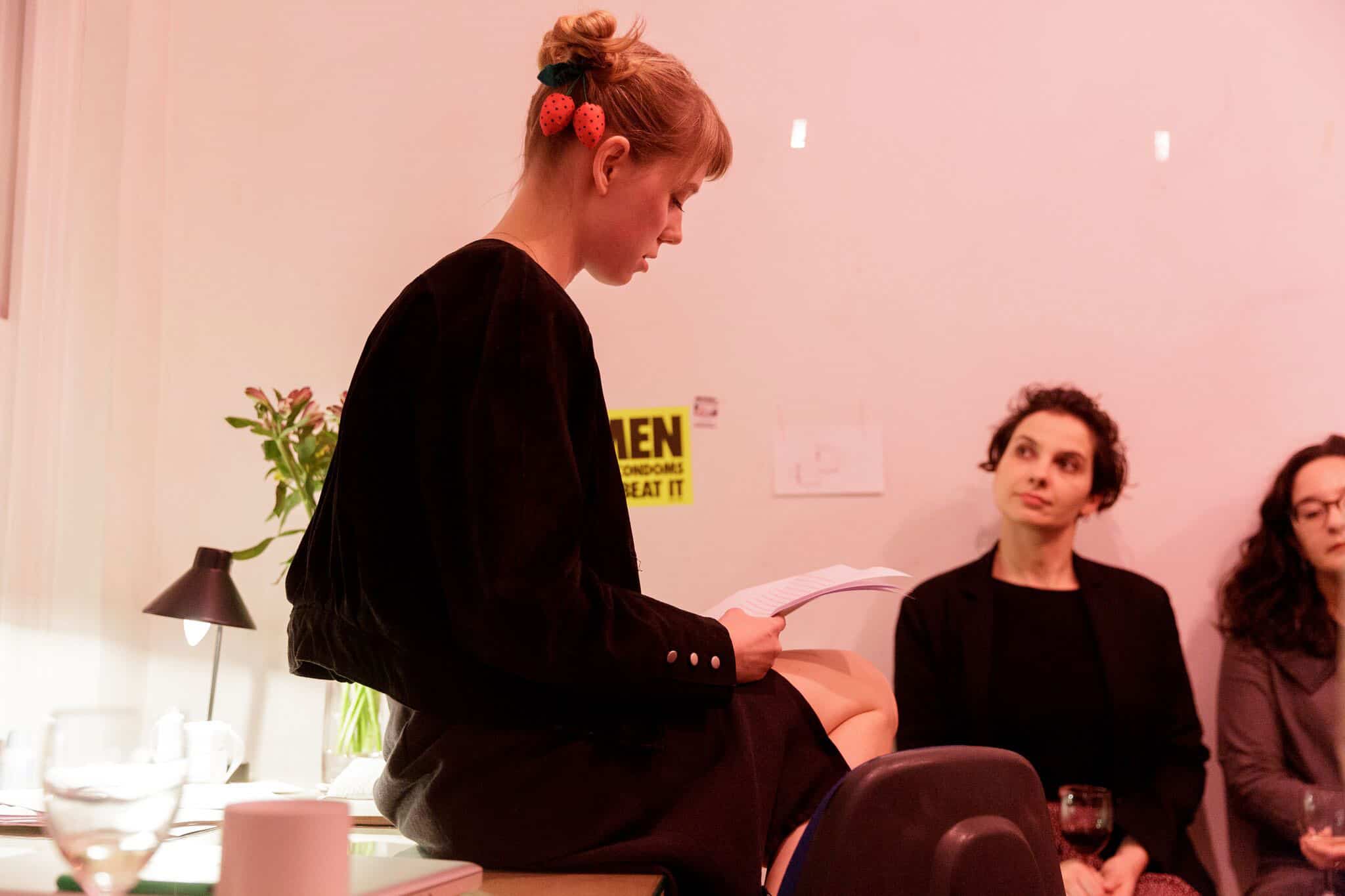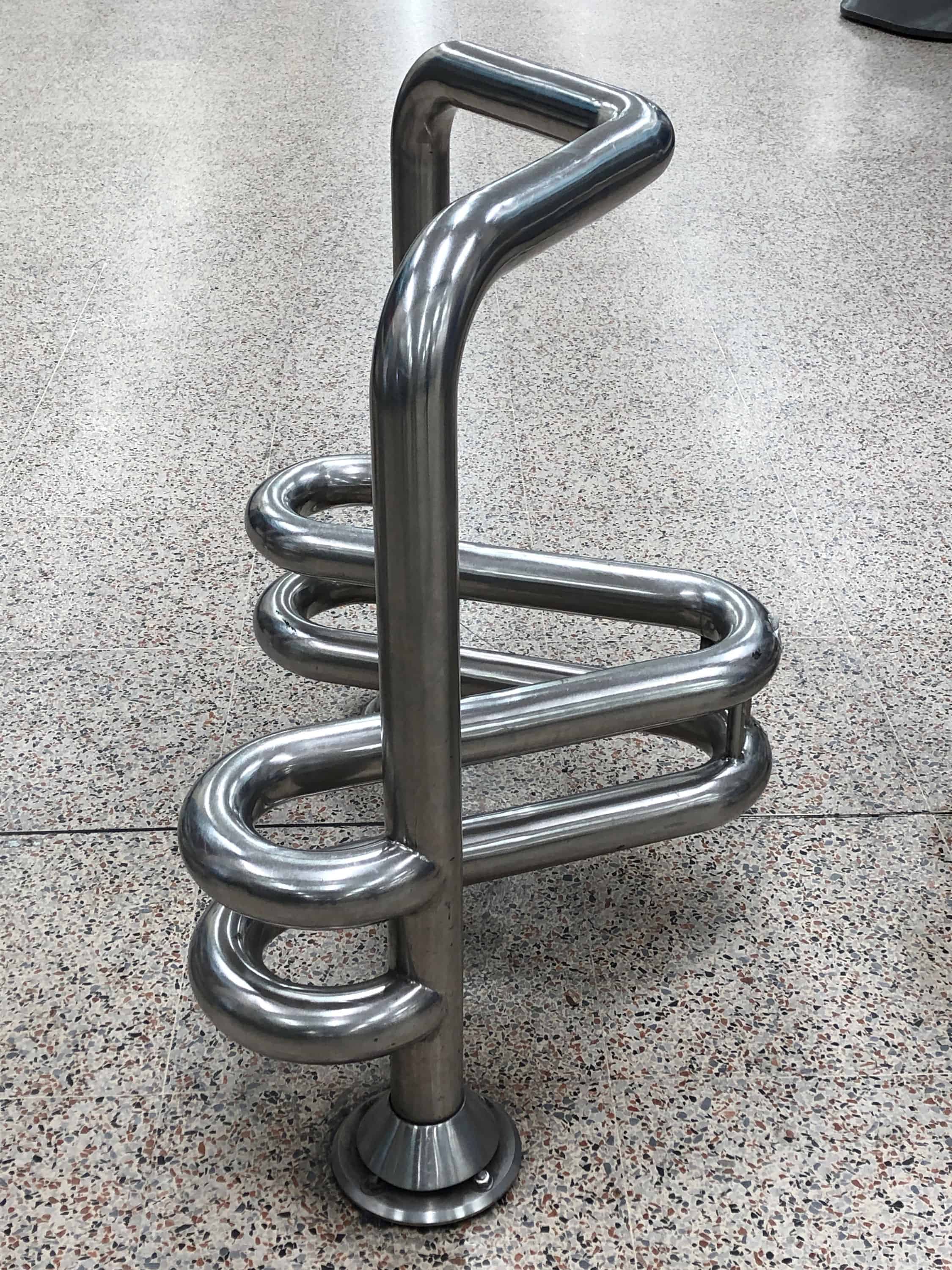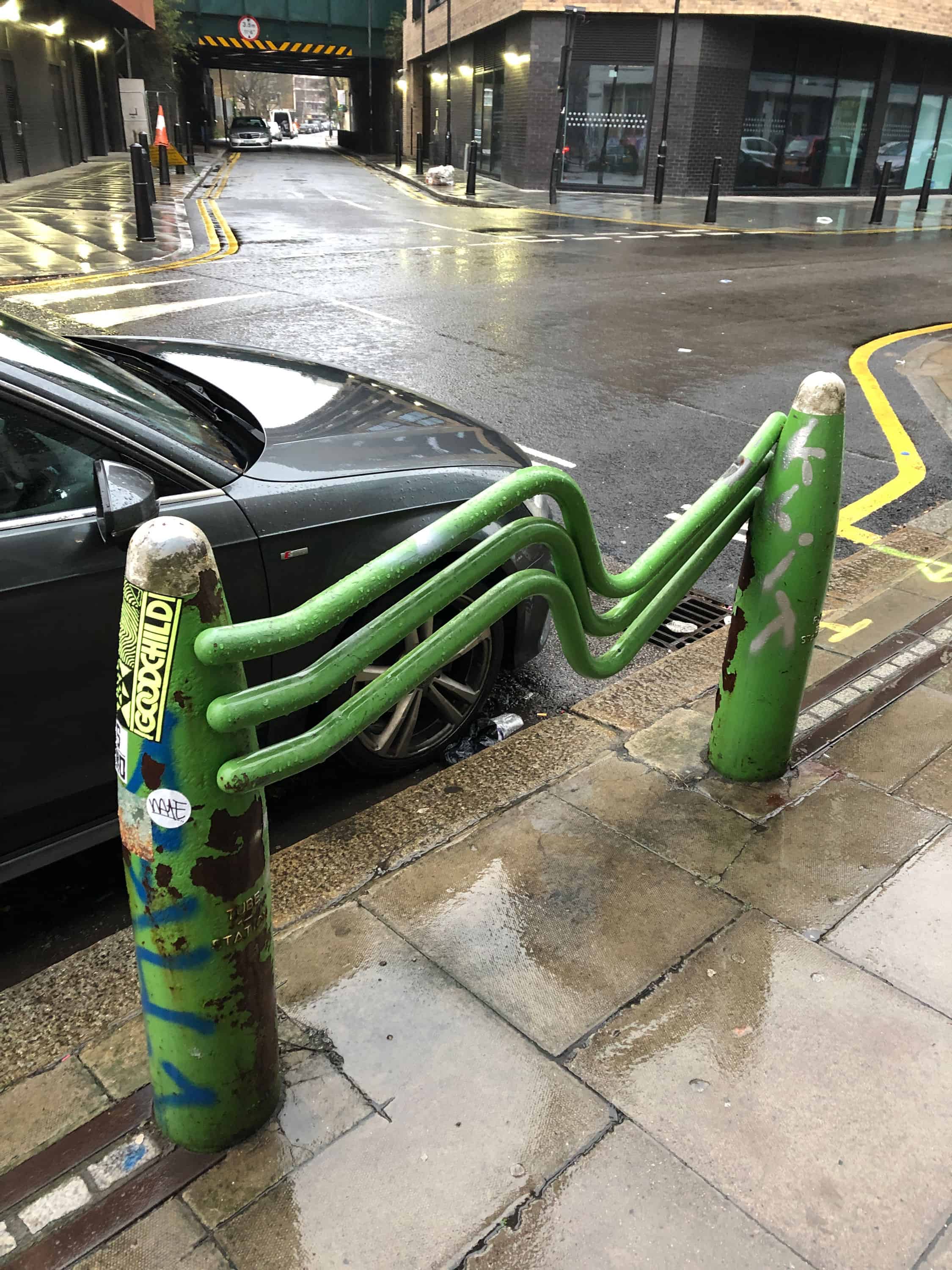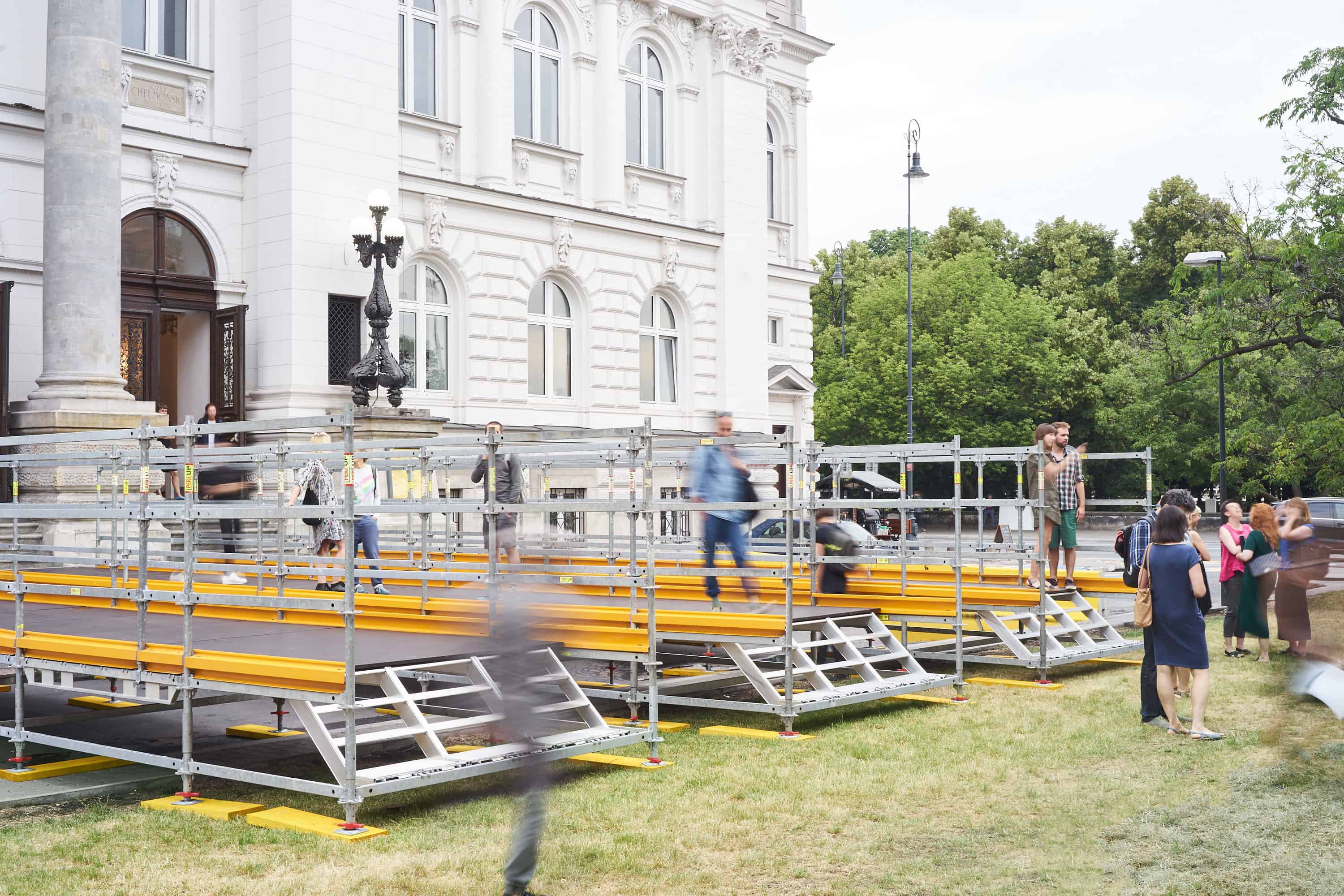A few months ago, I met with Zuza Golińska at the Delfina Foundation, to discuss her practice and her residency there. Zuza studied at the Academy of Fine Arts in Warsaw and graduated from Mirosław Bałka’s Studio of Spatial Activities. She is interested in creating site-specific installations that explore the concepts of the public space and social structures. Her works focus on how we use the spaces and architecture surrounding us. In the interview, we talk about how she became one of the residents in the prestigious Delfina, which this year is co-producing a special series of performances for the 58th Venice Biennale. We also talk about how Zuza finds inspiration and how she researches her projects. Her Eye Drop cinema opened earlier this year in PLATO, Ostrava.
Zuza Golińska, photo: Ewa Szatybełko
Maria Markiewicz: Zuza, in January 2018, your laser levels installation, Dead End, won the ArteVue ArtPrize and you were awarded with a residency at Delfina Foundation. How did the entire process look like?
Zuza Golińska: There was this competition for young artists organised by Delfina Foundation and the ArteVue app. I knew about Delfina Foundation before and therefore I was closely looking into their programmes and opportunities they were offering. Part of the award was a three-month residency at the Foundation in London. I was chosen by the jury as one of the finalists, together with three other artists from different parts of the world. Kiah Reading being Australian, Sahil Ravindra Naik from India and Lukas Zerbst from Germany but of Polish roots. We all met in London in January 2018 to put together a finalist’s exhibition. Then each of us had an individual talk with the jury regarding our practice and the work that we were showing in the exhibition. Eventually, I was announced as the winner during the official opening. That was quite surprising to me! But the time we spend together with other artists installing the show and hanging out was regardless of the me winning, super rewarding on the personal level.
MM: What is the focus of your residency?
ZG: Since this is a research residency there isn’t a particular outcome expected, I’m mostly expanding my knowledge on topics that interest me, because usually I don’t have so much time to do so. The residency lasts for three months and I have a lot of projects going on, a lot of exhibitions coming up, so it’s nice to have some time to focus only on thinking, reading and watching shows. But I would say my focus and highlight of being here is meeting fellow artists and people that work in my field. The energy that is being created between artists, curators, institutions and collectors is something that is very inspiring and can push you further with your practice. I would just say that relationships between different people generate new dynamics. This is what influences my thinking and seeing the world, I change cause of people I meet and therefore my practice and thinking about art changes as well. It’s great to step out of the Polish context. Living in the country in which the society is quite homogenised can be suffocating at times.
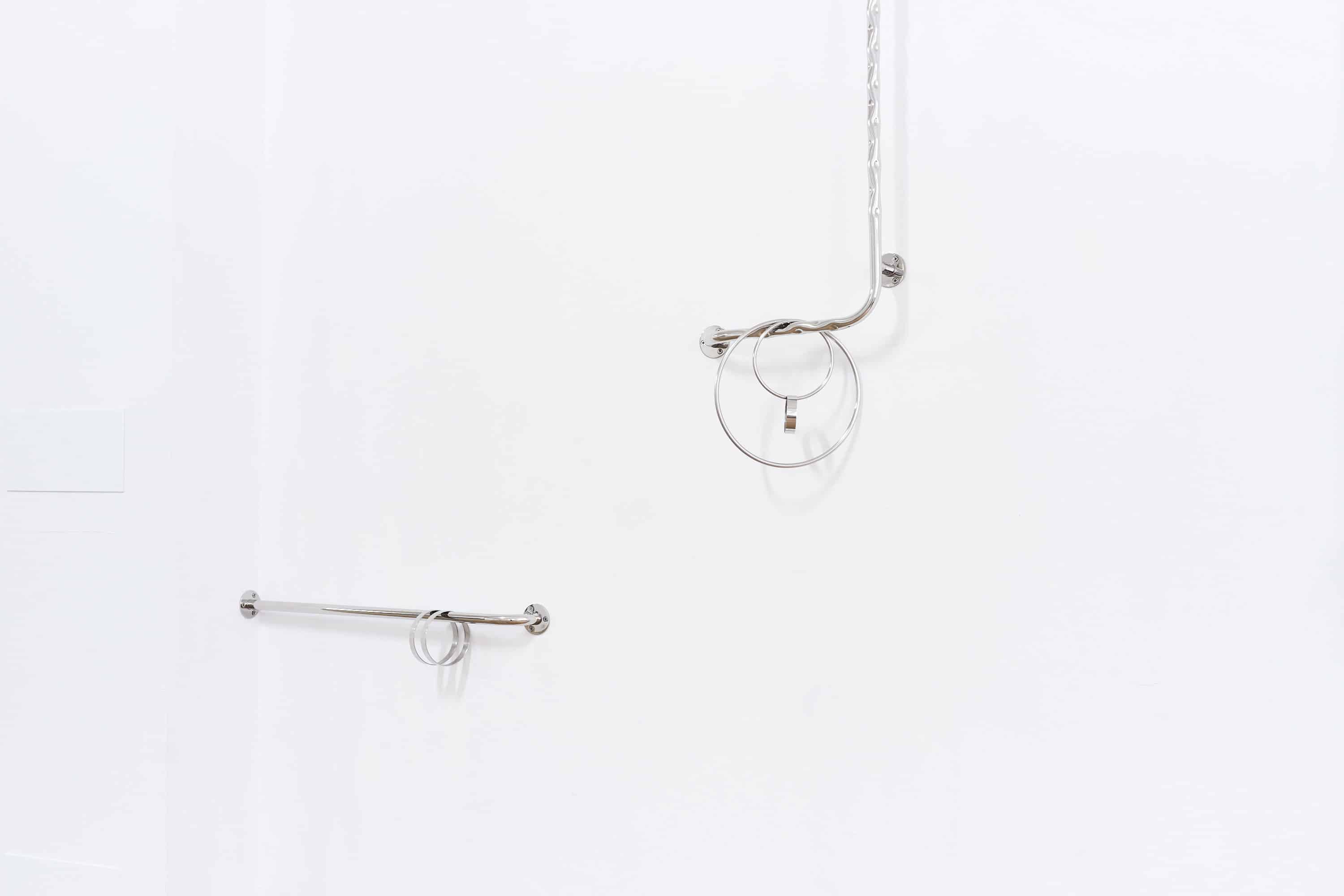
Zuza Golińska, Piercer Series, 2018
MM: Have you been on a residency before?
ZG: Yes, I did a month-long residency as part of the Artist Development Programme organised by European Investment Bank Institute in Luxemburg. That was the only residency I really applied to. I feel like modus operandi. Being an artist that is constantly going on residencies is definitely not interesting for me. It’s crucial for my practice that I have some sort of base. Being in a particular place for a month can be a nice way to get to know it but to actually create new works, you need an infrastructure, at least in my case. This is something that is hard to build in a month, especially in a different country. It’s a shame that at Delfina I didn’t go back into painting. That would definitely make things easier. Painting gives you some freedom, you can pretty much do it everywhere.
Zuza Golińska reading her text at Delfina Foundation, photo by Tim Bowditch. Courtesy Delfina Foundation, 2018
Zuza Golinska, The Office, MSN, picture by Marcel Kaczmarek
MM: Are you working on research for a particular project or expanding the research you previously did?
ZG: I started my research before I came here but I’m kind of expanding it into the public space. I’m paying extra attention to sculptural elements within the public space, their forms, functions and so on. I work a lot in terms of space and social structures and I think London is a perfect city to explore these themes. But I don’t work in such instant way. I do take my time. So I think for now I’m just gathering things, collecting them and afterwards, when some time will pass, I will be able to unpack them. I’m a long-distance runner, so we will see what I make out of it.
Another thing which I’m exploring for ages by now is skateboarding. I’m a huge fan of skate culture for around 8 years and I often visit skateparks to see how these people interact with space. In my conversation with Romuald Demidenko from year 2015 I was talking about it already. This is a big interest of mine which I will at some point maybe manage to wrap up. For now, I never found proper means to do so and there were already some artists in the past dealing with the subject, no point to repeat the basic gestures that are already out there without at least properly adding to it.
MM: What is it that interests you in skateboarding?
ZG: Skateboarding is an activity which uses the public space in a very creative way. Skateboarders use objects which are in fact obstacles for the body and use them into their advantage. They are dynamically changing the relationship between the body and the public space. I would rather not talk about it here, it’s a material for a separate discussion.
Zuza Golińska, London
Zuza Golińska, London
MM: I feel like research is a very important step in your art practice. I’ve heard that you often do your research by simply walking in certain areas, exploring the space on foot. Could you tell me a bit more about this?
ZG: It really depends on what I’m working on but generally speaking walking helps me to think. I enjoy walking in the cities that I do not know. It makes me more sensitive to the impulses around me. If you are in the place that you know very well, you kind of remember your way around, you know exactly how to get from one spot to another and you probably won’t even notice if something interesting appears on your way. You’re on a so-called automatic pilot. However, if you are in a new space, you are much more aware of your surroundings, that there is new architecture around you, different people… You start to notice the way in which people move and act within the space. That’s why I try to spend a lot of time with people that live here. I walk around with them, we watch shows and party together. I enjoy not being a total tourist. I have couple of artist friends that live here. Sarah Staton who is a friend mine, sculptor and tutor at RCA, often writes to me an address with some short note that that’s where she’ll be if I’d like to join. I just get dressed and leave. Often, I’m not even sure where I’m going.
MM: Do you find these walks inspiring? What else inspires you?
ZG: Definitely walking and listening to music. I listen to music a lot and I would risk saying that it moves me more than art. Definitely dancing, by myself on daily basis but also with friends on the parties, is something I do very regularly, and I treat it as part of my practice. I think you can’t do interesting sculptures and properly deal with space if you’re not in touch with your own body. Poetry is also something I enjoy a lot.
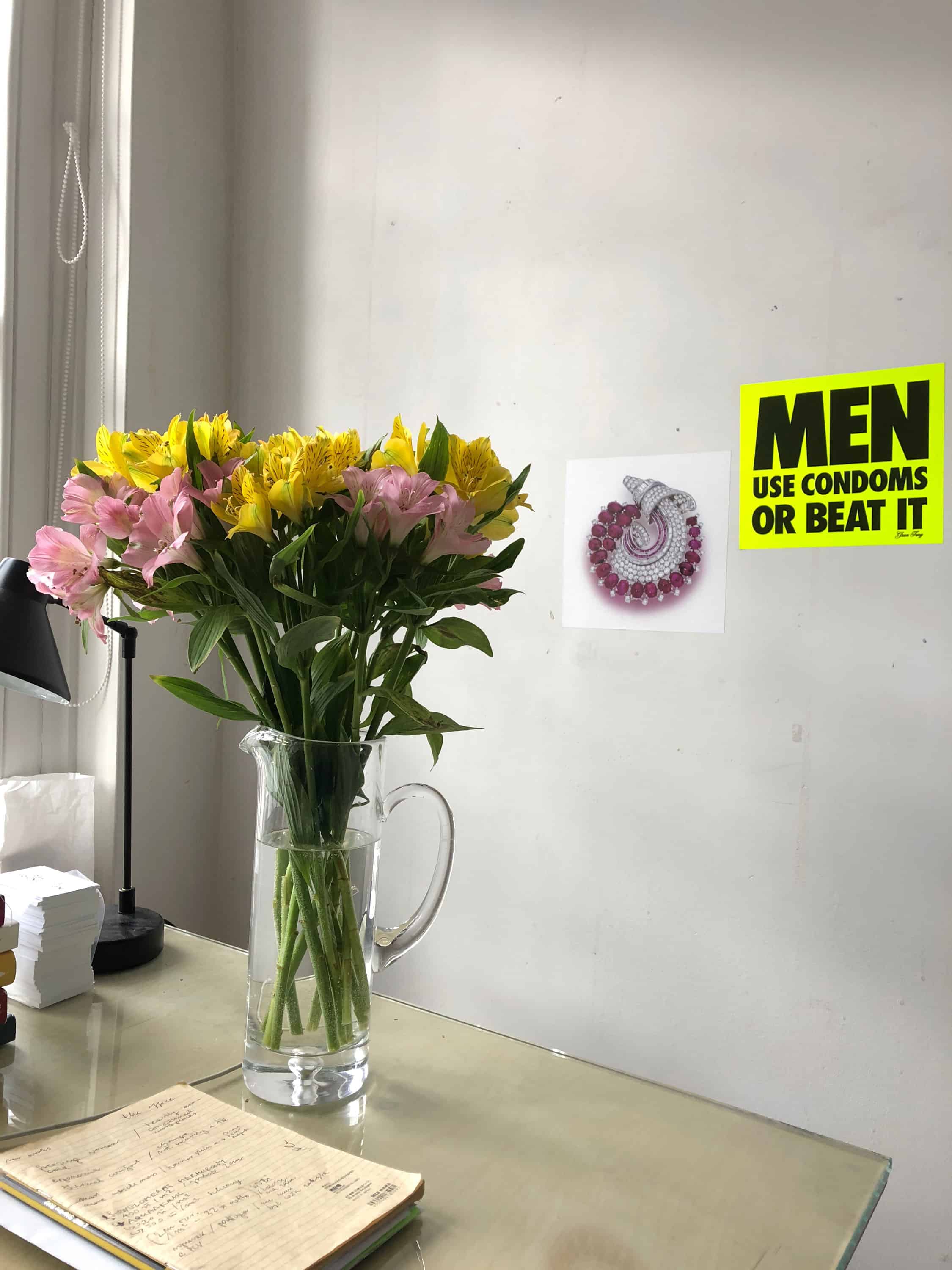
Zuza Golińska, London
MM: In your practice, you’re exploring the relationship between people and the public space. You work with performance, sculpture and installation, but also with scenography in theatre, so your body of work is very diverse. Does working in theatre differs from working as an artist within a gallery space?
ZG: In theatre, you need to think a lot about the audience because people will stay in the space at least an hour and in most cases much longer. Unless you just leave during the play, which in my opinion should be a regular and fully accepted option. I’m not a huge theatre fan, to be honest, but working with people like Magda Szpecht or Szymon Adamczak makes it worthwhile. The work I’m doing with Szymon, which is still in progress, resembles much more performance/research for example. I was never interested in polarisation of the space in theatre, meaning audience/stage. How boring and distant is that? In all the plays directed by Magda which I had the chance to work as person dealing with space and stage design, I tried to play with that a lot. In some of the plays there was literally no division between the audience and actors. This is something quite normal in performance art but not yet in theatre. Maybe cause in its essence theatre is a bourgeois medium, which is still used as a sign of a certain status. A lot of people that come to the theatre want to feel important and just sit comfortably.
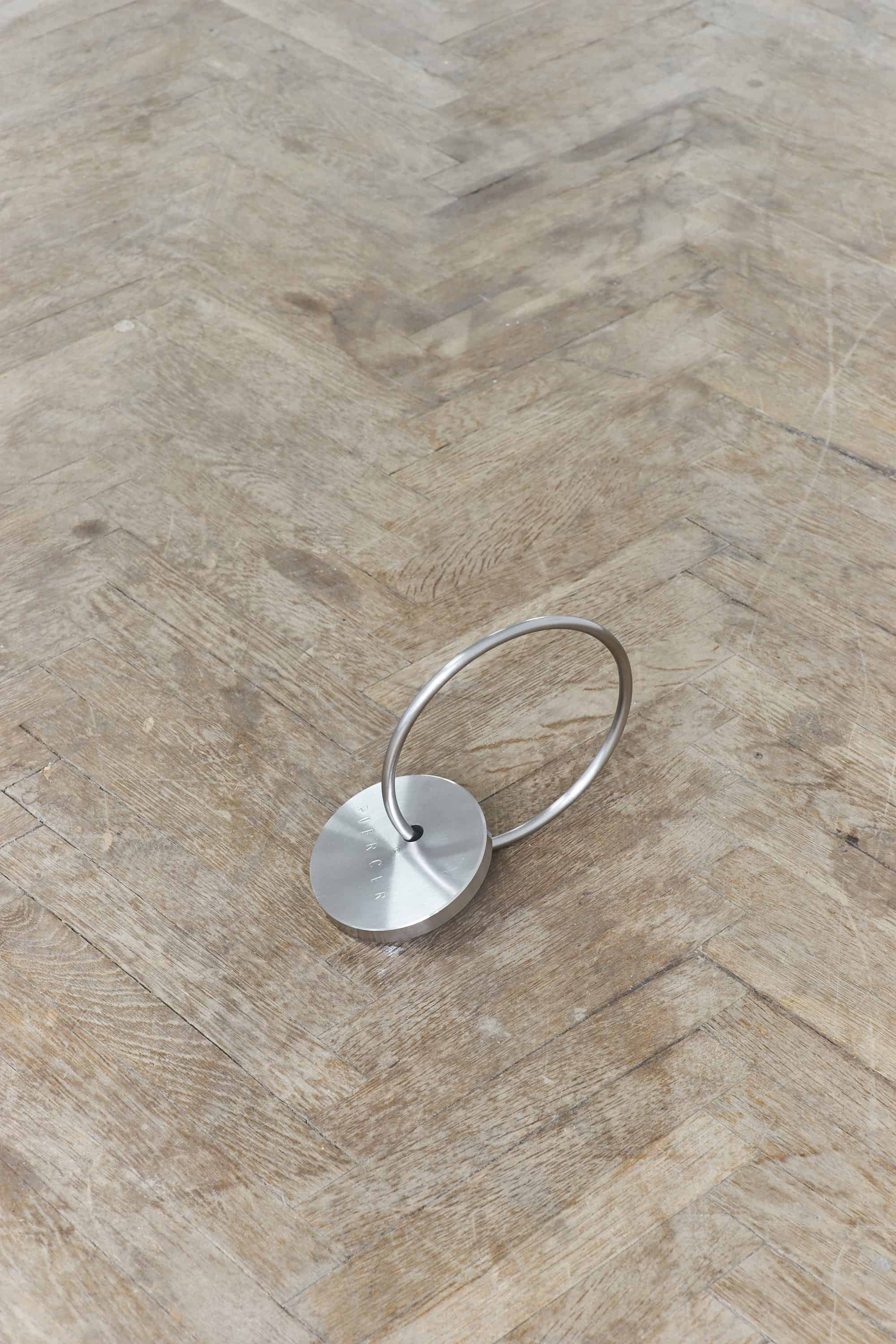
Zuza Golińska, Piercer Series, 2018
MM: What are you working on at the moment?
ZG: I’m working on a project which will open soon in Ostrava. I was invited to participate in a program Temporary Structures, which is located in a huge ex hardware store space. This is a project in which different artists were asked to create functional elements of the space. Someone did the library, garden, info point, café was designed by another Polish artist, Dominika Olszowy. I’m working on the cinema. The project requires from me creating an artwork which predominantly fulfils a particular function. I was invited to the project by Czech curator Jakub Adamec. PLATO Ostrava seems like one of the most interesting art institutions in this part of Europe. *
* Eye Drop cinema by Zuza Golińska opened at PLATO Ostrava on the 6th of March 2019. At the beginning of this year Zuza also participated in two group shows in London: Power Play at Delfina Foundation/KCCUK, curated by Aaron Cezar, and LIGHT-FOOTED LIGHT-FINGERED at The Ryder Projects.
The conversation between Zuza Golińska and Maria Markiewicz took place in December 2018 at the Delfina Foundation in London
Zuza Golińska, Left, Right, Center, 2018, Zachęta National Gallery of Art, picture by Marcel Kaczmarek



